Westphalian system
description: concept of the sovereignty of nation-states in Europe
21 results
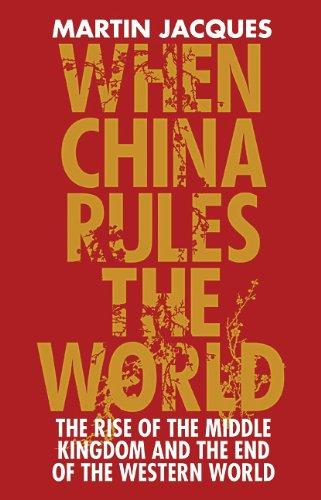
When China Rules the World: The End of the Western World and the Rise of the Middle Kingdom
by
Martin Jacques
Published 12 Nov 2009
Life has not been that dissimilar in the era of the single superpower, with most countries enjoying varying degrees of limited sovereignty in their relationship with the United States. Given the profound inequalities in interstate relations, the concept of equality in the Westphalian system is thus legalistic rather than real. In practice, as with the tributary system, it has strong hierarchical features.85 Like the tributary system, the Westphalian system also has an influential cultural component, namely the idea of hegemony or soft power. In other words, the distinction between the tributary and Westphalian systems is not quite as clear-cut as one might think. Seen in these terms, the restoration of elements of the tributary system in a modernized form does not seem so far-fetched.
…
ECHOES OF THE PAST In the light of the region’s realignment towards China, we can now return to the question of how East Asia’s relationship with China is likely to evolve and, in particular, to what extent it might bear some of the hallmarks of the tributary system. The tributary system and Westphalian system are often regarded as polar opposites and mutually exclusive, the former involving a hierarchical relationship, the latter based on relations of equality between sovereign nation-states. In fact, as mentioned in Chapter 7, the Westphalian system in practice has never been quite that simple. For most of its history it was largely confined to a group of European states, since until the second half of the twentieth century the great majority of countries in the world did not enjoy independence, let alone equality.84 Even after these countries became sovereign nation-states, in the great majority of cases they were to enjoy nothing like equality with the United States or the West European nations, a situation which was exacerbated during the Cold War, when nation-states experienced what was, in practice, limited sovereignty in their relationship with the superpower to which they owed their allegiance.
…
Instead of the world thinking exclusively in terms of nation-states, as has been the case since the end of colonialism, the lexicon of international relations will become more diverse, demanding room be made for competing concepts, different histories and varying sizes. THE RETURN OF THE TRIBUTARY SYSTEM The Westphalian system has dominated international relations ever since the emergence of the modern European nation-state. It has become the universal conceptual language of the international system. As we have seen, however, the Westphalian system has itself metamorphosed over time and enjoyed several different iterations. Even so, it remains what it was, an essentially European-derived concept designed to make the world conform to its imperatives and modalities.
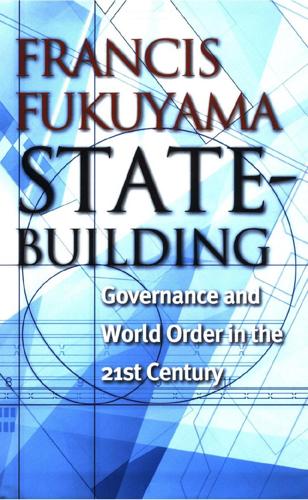
State-Building: Governance and World Order in the 21st Century
by
Francis Fukuyama
Published 7 Apr 2004
The experience of Somalia, Haiti, Cambodia, the Balkans, and other places has generated a huge literature on external intervention (see, among others, weak states and international legitimacy 97 Damrosch 1993; Heiberg 1994; Hoffmann 1996; Lugo 1996; Mastanduno and Lyons 1995; Mayall 1996; Murphy 1996; von Lipsey 1997; Weiss and Collins 1996; and Williamson 1998; for a critical view, see Carpenter 1997). In the debates over humanitarian intervention, the case was made that the Westphalian system was no longer an adequate framework for international relations. The Westphalian system was built around a deliberate agnosticism over the question of legitimacy. The end of the Cold War, it was argued, brought about much greater consensus within the world community over the principles of political legitimacy and human rights than before.
…
The effort to be more “scientific” than the underlying subject matter permits carries a real cost in blinding us to the real complexities of public administration as it is practiced in different societies. 3 w e a k stat e s a n d i n t e r n at i o n a l legitimacy I n the first two chapters I discuss the problem of weak governance and missing or inadequate institutions at the nation-state level, where it becomes a critical obstacle to the economic development of individual poor countries. It has also become a critical problem at the level of the international system as a whole. Sovereignty and the nation-state, cornerstones of the Westphalian system, have been eroded in fact and attacked in principle because what goes on inside states—in other words, their internal governance—often matters intensely to other members of the international system. But who has the right or the legitimacy to violate another state’s sovereignty, and for what purposes?
…
P., 110 New Zealand, 13, 35 State Sector Act, 14 Nicaragua, 39 North Atlantic Treaty Organization (NATO), 116 North, Douglass, 33 nongovernmental organizations (NGOs), 60 Office of the High Representative in Bosnia and Herzegovina, 103 Olsen, Johan, 52 Organization for Economic Cooperation and Development (OECD), 17 n2, 18 organizational culture, 63 Oslo peace process, 94 Pakistan, 30 Panama, 39 Peel Reforms, 85 Perry, Commodore, 34 Philippines, 39 Pinchot, Gifford, 64 Plaza Accord, 75 Political Order in Changing Societies (Huntington), 26 Polity IV data set, 11 presidentialism, 25 136 index principal-agent relationships, 47–52, 55, 60, 65 Pritchett, Lant, 56, 84 privatization, 18–19, 59 procurement, government, 71 property rights, 21 public administration, 23, 43–44 Public Administration (Simon et. al), 79 public choice theory, 49–50 public education, 58–59 al-Qaida, 93, 95, 105 rational choice political science, 33 Reagan, Ronald, 113 Reaganism, 4 rule of law, 59 Russia, 13, 18 fiscal federalism in, 25 Rwanda, 93 satisficing, 52 Saudi Arabia, 94–95 Schein, Edgar, 79, 81 Schröder, Gerhard 105 scientific management, 62 Scott, James, 82 Sears Roebuck Company, 70–71 Selznick, Philip, 79–80 September 11 attacks, x–xi, 2, 93 Serbia, 97, 116 shirking, 61–62 Sierra Leone, 93 Simon, Herbert, 52–54, 79 Singapore, 38 social capital, 30, 62–63 Somalia, x, 93 Sorensen, Georg, 35 sovereignty, 92, 97–98, 104 Soviet Union, 2, 12–13, 26 Spain, 34 state, definition, 6 European views of, 110 functions, 1 legitimacy, 110 scope, defined, 7 strength, defined, 7 totalitarian, 3 state-building, defined, ix stovepipes, 54, 65 subsidiarity, 67 Suharto, 28, 71–72 Sweden, 4, 34 Taiwan, 30, 35, 37 Taylor, Frederick, 62 Taylorism, 62–63, 78 Tennessee Valley Authority, 79 terrorism, xi, 93, 98 Thailand, 17 n2, 18 Thatcherism, 4 Tilly, Charles, 34 Tollison, Robert 49 Transparency International, 10 Tullock, Gordon, 49 Turkey, 12, 28, 35 Uganda, x United Nations, 98, 109, 115–116 Security Council debate over Iraq, 108 weaknesses of, 115–116 United States, 6 founding of, 31 national identity in, 112–113 post-September 11 foreign policy, 94–96 quality of bureaucracy in, 12 state-building in, 34 unilateralist policies, 105–106 United States Agency for International Development (USAID), 89 n6, 90, 90 n6, 107 van de Walle, Nicholas, 16, 36 Venezuela, 28 Vietnam, Republic of, 39 von Mises, Ludwig, 68 vouchers, 59 index Washington consensus, 5, 15, 17 weapons of mass destruction (WMD), xi, 93, 98, 105, 108 Weber, Max, 6, 67 Weingast, Barry, 33 Westphalian system, 92, 97 Wiley, Harvey, 64 Williamson, Oliver, 46, 52, 79 Wilson, James Q., 79 Wilson, Woodrow, 109 Winthrop, Governor, 113 Wood, Robert, 71 137 Woolcock, Michael, 56, 82, 84 World Bank, 5, 10, 41 World Development Report, 1997 (World Bank), 7 World Trade Organization, 106– 107 Yates, Joanne, 68 zaibatsu, 85 Zaire, 16 Zakaria, Fareed, 26
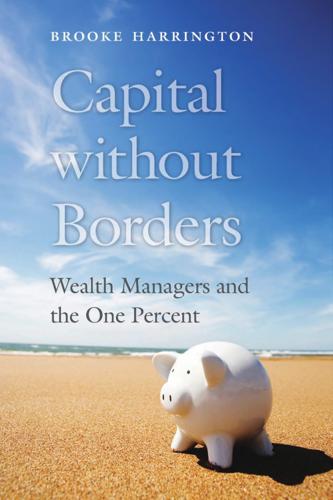
Capital Without Borders
by
Brooke Harrington
Published 11 Sep 2016
Their work highlights, and often exacerbates, the “lack of existing regulatory capacity at the global level”—that is, the absence of effective institutions to address gaps and conflicts in national laws with regard to global capital flows.4 Examining the relationship between states and wealth managers ties into ongoing debates about the extent and consequences of globalization, known as “one of the most vexed issues in all of social science.”5 On the one hand, there is recognition of a profound change occurring in the configuration of state power. Some view this as the end of the Westphalian system: “A key feature of the current epoch is the supersession of the nation-state as the organizing principle of capitalism.… [T]ransnational or global space is coming to supplant national spaces.”6 But “globalization skeptics” see this as excessively pessimistic about the role of the state.7 In particular, they point to lack of coordination in the international financial system as indicating that the forces of economic globalization pose a weak challenge to the power of the state.
…
U.S. consular fees for renunciation have been hiked by 442 percent in recent years (making them twenty times higher than the average for developed countries); if that doesn’t provide a sufficient deterrent, several of those former citizens have been barred from reentering the country.70 At the other extreme, some observers argue that it is better to acquiesce to the crumbling of the Westphalian system by giving up on the notion of citizenship altogether. A recent book of policy scholarship proposes “abolishing borders and transforming all human beings into citizens of the world.”71 The seriousness with which this proposition has been greeted suggests how deeply impaired the centuries-old world system of states, sovereignty, and citizenship has become, partly thanks to the work of wealth managers.
…
But the data from this study suggest that the problem has grown to an extent almost unimaginable previously; even in the feudal era, there were still authorities (such as the Roman Catholic Church in Europe) that retained a meaningful power to impose laws on even the wealthiest and most privileged of individuals. Today there no longer seem to be such authorities or such power. The high-net-worth individuals of the world are largely ungoverned, and ungovernable. It is this, even more than the emptying of state coffers, that poses the direst threat to the Westphalian system. This brings us to the third and final contribution of this book to the study of states and political economy: the suggestion that a kind of parallel state system has arisen for the wealthy, a system that operates largely unnoticed except when it throws the world that the rest us inhabit into chaos.
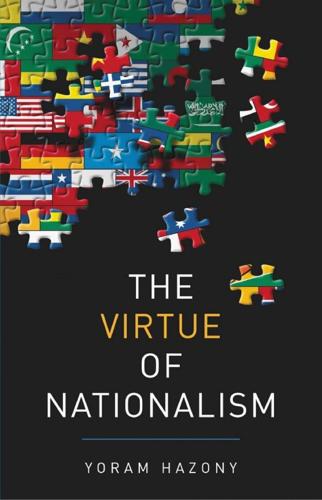
The Virtue of Nationalism
by
Yoram Hazony
Published 3 Sep 2018
This point is discussed at length by Croxton, who suggests that the interpretation of the treaties as having been responsible for giving birth to a “Westphalian” system of sovereign states goes unnoticed in the international-relations literature until Pierre-Joseph Proudhon points it out in 1863. Derek Croxton, Westphalia (New York: Palgrave MacMillan, 2013 ed.), 339–362. Of course Vattel was already writing about a system of putatively “equal” and “sovereign” states in Europe in 1758, a century after the Westphalia treaties, but Croxton’s point is basically right: What is later called the Westphalian system is hardly the only possible view of the order emerging during the Thirty Years’ War. 27.
…
It was this deeply entrenched German-universalist and imperialist tradition that had made it so easy for the preeminent German philosopher of Enlightenment, Immanuel Kant, to assert in his Perpetual Peace that the only rational form of government would be one in which the national states of Europe were dismantled in favor of a single government that would eventually be extended to the entire world. In repeating this theory, Kant was merely offering yet another version of the German-led Holy Roman Empire.55 Adenauer’s repeated proposals to restrain Germany by eliminating the Westphalian system of national states did not, for this reason, envision Germans giving up on much that had been historically significant to them. The chancellor was in fact only reiterating a venerable German tradition as to what political arrangements in Europe should look like. Nations that had won their independence from the German emperors at such cost three or four centuries earlier, on the other hand, were being asked to make quite a considerable sacrifice for the sake of the promised peace and prosperity.
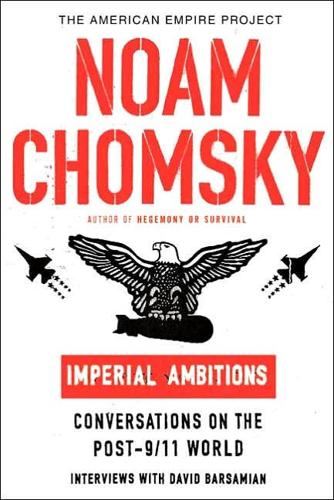
Imperial Ambitions: Conversations on the Post-9/11 World
by
Noam Chomsky
and
David Barsamian
Published 4 Oct 2005
The most interesting comment, perhaps, was Henry Kissinger’s, responding to a major address by President Bush at West Point in which he had presented an outline of the National Security Strategy. Kissinger said this “revolutionary” doctrine in international affairs would tear to shreds not only the UN Charter and international law but the whole seventeenth-century Westphalian system of international order. Kissinger approved of the doctrine, though he added one proviso: we have to understand that this can’t be “a universal principle available to every nation.”6 The doctrine is for us, not for anyone else. We will use force whenever we like against anyone we regard as a potential threat, and maybe we will delegate that right to client states, but it’s not for others.
…
Congress “unlawful combatant,” Venezuela Vietnam, invasion of Cambodia Vietnam War volunteer army Wall Street Journal war crimes War Crimes Act (1996) War of 1812 wars of aggression Washington, George Washington Post weapons of mass destruction Wedgwood, Ruth welfare West Africa Western expansion Western Hemisphere Institute for Security Cooperation Westphalian system Williams, William Appleman Wilson, Richard Wilson, Woodrow Wolfowitz, Paul women’s rights World Social Forum World War 1 World War II Yamashita, Tomoyuki Yeltsin, Boris Yugoslavia, special tribunal for Zinn, Howard Zionism ABOUT THE AUTHORS NOAM CHOMSKY is the author of numerous bestselling political works, from American Power and the New Mandarins in the 1960s to Hegemony or Survival in 2003.
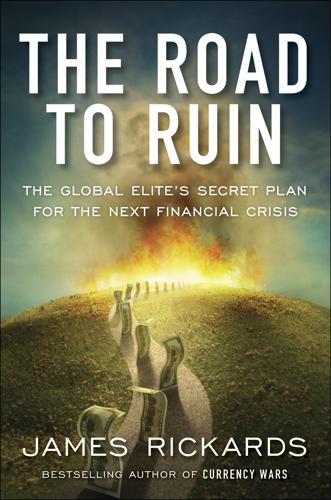
The Road to Ruin: The Global Elites' Secret Plan for the Next Financial Crisis
by
James Rickards
Published 15 Nov 2016
From 1618 to 1648, Europe devoured itself in its first demonstration of total war since antiquity. Civilian populations were starved and slaughtered and cities destroyed in ways not seen since the pagans. What ended the desolation was the Peace of Westphalia, from which emerged the modern state system of sovereignty and diplomacy we have had ever since. Under the Westphalian system, states existed within recognized borders. Each state’s sovereignty was recognized by others. Principles of noninterference were agreed. Religious differences between states were tolerated. States might be monarchies or republics. Permanent state interest, or raison d’état, was the organizing principle of international relations.
…
Throughout the eighteenth and nineteenth centuries, France was the threat against which the balance of power was maintained. By the late nineteenth and early twentieth centuries, Germany and Russia became the primary threats. Great Britain, and later the United States, served as principal counterweights first to French, and then to German and Russian power. The Westphalian system collapsed utterly in the horrors of the First and Second World Wars. The interwar period, 1919–39, saw efforts to build another world order based on multilateral organizations like the League of Nations. These efforts failed due to the legacy of a vindictive 1919 Treaty of Versailles. That treaty made Germany revanchist, and revenge inevitable.
…
The United States acted through alliances such as NATO supported by gold, nuclear weapons, and sea power. Russia acted through a land-based empire, the Union of Soviet Socialist Republics, and proxy states including Cuba, North Korea, and North Vietnam. This postwar condominium included elements of the Westphalian system such as statehood, sovereignty, and diplomacy, now supplemented with more robust versions of the failed multilateral institutions of the interwar period. The United Nations, International Monetary Fund, World Bank, and later the G20 were a new multilateral metastructure imposed on the state system to maintain peace, promote growth, and instill monetary stability.
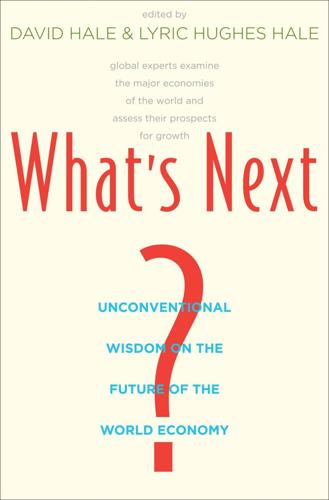
What's Next?: Unconventional Wisdom on the Future of the World Economy
by
David Hale
and
Lyric Hughes Hale
Published 23 May 2011
Bank of England Governor Mervyn King’s dictum that we have global banking in life but national banking in death characterizes the fact that large, complex financial institutions are larger than sovereign nations, ineffectively regulated in compartments at national levels, and not bound by any global laws. Their demise means that national governments have to pay for the global banks’ mistakes, but ultimately the whole world pays in the form of higher inflation, near zero interest rates, increased taxation, and lost jobs. The Westphalian System’s Relevance to Finance Wanes The Westphalian system of national sovereignty and voluntary cooperation is cracking at the seams in this highly interconnected and interdependent world. The G-20 has improved the legitimacy of global governance, but the “What to Do” is confused by turf battles over “Who Bears the Loss” and “Who Will Have the Control”.
…
See Troubled Asset Relief Program (TARP) tar sands industry, xviii tax cuts, xvii; in Canada, xviii; in US, 5 taxes: Canada, 20; consumption-based taxes, 261–263; corporate taxes, 260; energy taxes, 260; excise taxes, 262; income taxes, 6, 260–262; payroll taxes, 261–262; sales taxes, 262; Tobin tax, xxvii, 250–255; turnover tax, 253–255; value-added tax (VAT), xxviii, 6, 43, 262 tax policy, xxvii–xxviii; Canada, 20, 26; Mexico, xix, 42–43; public debt and, 259–260; South Africa, 136; US, 6, 60, 260–261 technology: climate change and, 227; hydrocarbons and, 181–183 telecoms, 26 television, 298 Term Asset-Backed Securities Loan Facility (TALF), 277 testosterone, 290 Thailand, 7 Thaler, Richard, 291 Tobin, James, 250 Tobin tax, xxvii, 250–255 “too-big-too-fail” bailouts, 266, 267, 268 total factor productivity (TFP), 87 toxic securities, 238–239 transparency, 280–282 Trichet, Jean-Claude, 237–238 Triffin Dilemma, 252–253 Troubled Asset Relief Program (TARP), 3, 277 turnover tax, 253–255 Tversky, Amos, 289 Uganda, xxii, xxv, 126 unemployment rate, xvi, 4 United Kingdom: climate change policy of, xxvi; domestic demand in, 140; as financial capital, 244–245; fiscal deficit in, 257; fiscal policy of, 59, 71; government debt in, 160–161; Tobin tax and, 251–252 United Nations Development Programme (UNDP), 184 United Nations Framework Convention on Climate Change (UNFCCC), 220–222 United States: banking sector in, xxvii, 235–241; Canada and, 13–14, 24; climate change and, xxvi, 224–225; corporate sector in, xvi, 4, 8; economic recovery in, xvi–xvii, 3–11, 13–14, 65–66; as engine of world demand, 96, 140; environmental policies, 5, 27; financial system of, 157; fiscal deficit in, 10–11, 70, 257; fiscal policy of, xvii, 6, 10–11; fiscal stimulus program in, 4; government debt, 160; growth rate in, 5, 13–14; household sector in, 8; housing sector in, 9; industrial production in, 65; monetary policy of, 7–10; partisan politics in, 5–6; politics in, 269–270; productivity gains in, xvi, 4; public policy of, xvi–xvii; stimulus measures in, 4, 13; tax policy of, 6, 63, 260–261 Uribe, Alvaro, 33 Uruguay, 48, 49–50 US consumers, xv US dollar: alternatives to, 158; devaluation of, xvii, 7, 25; gold prices and, 173–174; as reserve currency, xxiv, 153–165; weakening, and commodity prices, 53 US government securities, 160 value-added tax (VAT), xxviii, 6, 43, 262 Van Alstyne, Marshal, 296 Venezuela, 48–49, 50, 51, 183 Volcker Rule, 267, 268 web-based communities, 296 Weber, Alex, 285 welfare expenditures, South Africa, 137–138 Wellink, Nout, 248 West Africa, xxii, 126–127 Westphalian system, 251 World Bank, 119, 154 world economy, 12–14; in 2010–2011, 94–95; recovery of, xv; trends underpinning, 78–80 yen, xxiv, 9, 97, 98, 167 yield curves, 82–83 Yoshida, Shigeru, 105 Zambia, 118, 125 ZANU-PF, 125 Zapatistas, 35 Zedillo, Ernesto, 35 Zimbabwe, xxii, 125 Zoellick, Robert, 169 “zombie” firms, 112 Zuma, Jacob, 125, 128, 134–137
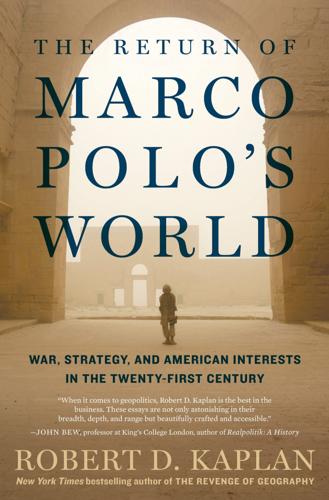
The Return of Marco Polo's World: War, Strategy, and American Interests in the Twenty-First Century
by
Robert D. Kaplan
Published 6 Mar 2018
And my wife, Maria Cabral, remains there with decades’ worth of love and support. 1. The Return of Marco Polo’s World and the U.S. Military Response AS EUROPE DISAPPEARS, EURASIA COHERES. The supercontinent is becoming one fluid, comprehensible unit of trade and conflict, as the Westphalian system of states weakens and older, imperial legacies—Russian, Chinese, Iranian, Turkish—become paramount. Every crisis from Central Europe to the ethnic-Han Chinese heartland is now interlinked. There is one singular battle space. What follows is a historical and geographical guide to it. The Dispersion of the West Never before in history did Western civilization reach such a point of geopolitical concision and raw power as during the Cold War and its immediate aftermath.
…
The decline of states in general in inner Asia means a future of more refugees. We will have to become expert at using refugee camps for intelligence gathering, at a time in history when our adversaries try to weaponize refugees. Obviously, diplomacy will be altogether crucial in many of these efforts, in which there will be no victory parades, even as the Westphalian system of modern states weakens and calcifies. Of course, we must maintain robust land forces for the sake of unpredictable contingencies, as well as to demonstrate clearly that we always reserve the right to intervene—even if we don’t, or shouldn’t. The fact is, a robust land force in and of itself affects the power calculations of our adversaries to our advantage.
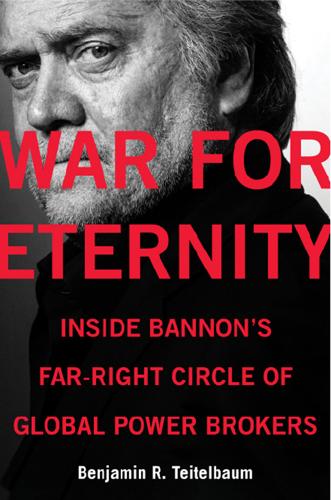
War for Eternity: Inside Bannon's Far-Right Circle of Global Power Brokers
by
Benjamin R. Teitelbaum
Published 14 May 2020
But when his conversation turns to China, as is inevitable, the topic of borders works its way in as well. As he sees it, borders are central to China’s view of the world and their attempts to dominate it: “What the Chinese have in mind is anti-Westphalian. This is why Olavo and I are exactly on the same page. The Westphalian system is a system of nation-states—individual, independent, robust nation-states where the citizen can get the most value and have the most ability to control his own fate. What the Chinese are doing is a network effect. They’re taking the British East India Company model of predatory capitalism, spreading it out through One Belt One Road and Made in China 2025 initiatives, where they’re going to be an über-EU, which is, you know, whether it’s sub-Saharan Africa, Europe, the United States, Brazil, we’re all just administrative units in a network, right?”
…
Spending their money and lives in wars that didn’t directly involve them and their welfare was antithetical to that cause, the reasoning went. America first. But like many of Steve’s principles, the one surrounding nonintervention had layers of justification. Being a nationalist for one’s self must involve, he would tell you, being a nationalist on behalf of others. That is the Westphalian system of governance that he idolizes. It’s about respect for the sovereignty of the nation-state as a transcendent principle. And it’s about respecting the right of other nations to preside over their own affairs: only an anti-nationalist approach would grant one state license to intervene in another’s internal dealings.
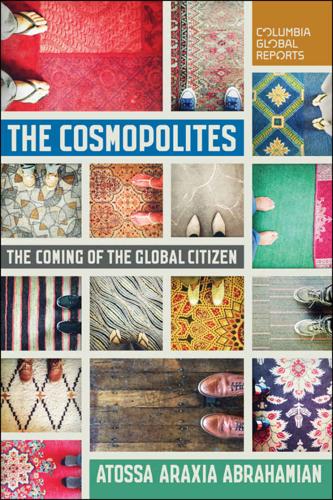
The Cosmopolites: The Coming of the Global Citizen
by
Atossa Araxia Abrahamian
Published 14 Jul 2015
Even after antiquity ended and the “world city” ceased to rule an empire, Latin language, Christian church, and Roman legal codes were the essential common currency of the West. Only when the rupture in Christian unity led to another total war between Catholics and Protestants in the sixteenth century did the space open for a new organizing principle: a system of sovereign nation-states, embodied most famously in the Treaty of Westphalia in 1648. The Westphalian system is, for better or worse, the one in which we all live—the one which issues passports and grants equal sovereign rights to France and Kuwait and the Comoro Islands. Since 1945 it has kept the world’s chief powers from another total war. But as history shows, the nation-state system was neither humanity’s first conception of citizenship, nor will it be the last.

The Extreme Centre: A Warning
by
Tariq Ali
Published 22 Jan 2015
Under Madeleine Albright US policy grew progressively more interventionist, and the check that the Powell Doctrine was supposed to be found itself ultimately undercut by Powell’s unbridled enthusiasm for strengthening the military. The limited, ‘humanitarian’ interventions of the nineties helped bury the Powell Doctrine as well as the sanctity of state sovereignty enshrined in the Westphalian system and the UN Charter. From the invasion of Panama in 1989 to the invasion of Iraq in 2003, the United States would participate in nine major campaigns. A blue-ribbon commission appointed by the US government in 1999 reported that ‘since the end of the Cold War, the United States has embarked upon nearly four dozen military interventions … as opposed to only sixteen during the entire period of the Cold War.’
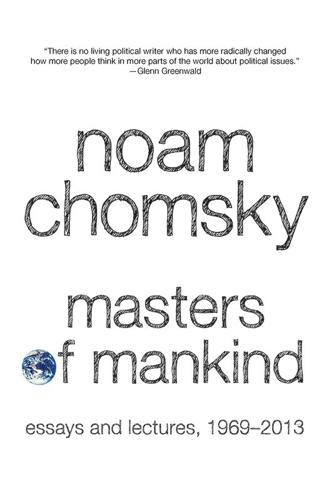
Masters of Mankind
by
Noam Chomsky
Published 1 Sep 2014
The NSS was widely criticized among the foreign policy elite, including the article just cited, but on narrow grounds: not that it was wrong, or even new, but that the style and implementation were so extreme that they posed threats to US interests. Henry Kissinger described “The new approach [as] revolutionary,” pointing out that it undermines the seventeenth-century Westphalian system of international order, and of course the UN Charter and international law. He approved of the doctrine but with reservations about style and tactics, and with a crucial qualification: it cannot be “a universal principle available to every nation.” Rather, the right of aggression must be reserved to the US, perhaps delegated to chosen clients.
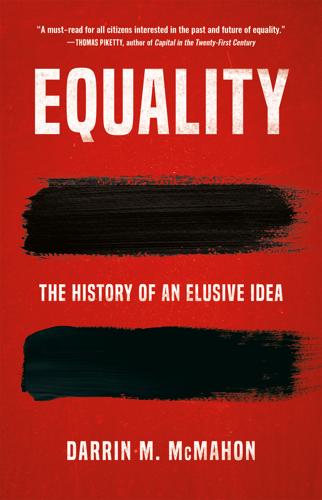
Equality
by
Darrin M. McMahon
Published 14 Nov 2023
Ideally, sovereign equality was a guarantee of the domestic autonomy of states within their borders and of pluralism and diversity in the international system writ large.9 But theory and practice seldom perfectly coincide, and the principle of sovereign equality as it had developed since the early modern period was no exception. In theory, the so-called Westphalian system of states, said to have come into being when the Peace of Westphalia (1648) put an end to the European religious wars of the sixteenth and seventeenth centuries, gave birth to the sovereign equality that Vattel described, with its attendant principles of territorial integrity and nonintervention. But as historians have made clear, the Westphalian system is largely a myth, and even in Vattel’s aspirational form, it admitted of numerous exceptions.10 More to the point, the European state system described by Vattel was predicated on what he called “the famous scheme of the political balance, or the equilibrium of powers, by which is understood such a disposition of things, as that no one potentate be able absolutely to predominate, and prescribe laws to the others.”

Future Crimes: Everything Is Connected, Everyone Is Vulnerable and What We Can Do About It
by
Marc Goodman
Published 24 Feb 2015
Mat Honan found out the hard way, as have thousands of others. But what should happen if and when the technological trappings of our modern society—the foundational tools upon which we are utterly dependent—all go away? What is humanity’s backup plan? In fact, none exists. The World Is Flat (and Wide Open) For centuries, the Westphalian system of sovereign nation-states has prevailed in our world. It meant that countries were to be sovereign in their territory, with no role for outside authorities to meddle in a nation’s domestic affairs. The Westphalian structure was preserved through a system of borders, armies, guards, gates, and guns.
…
Chapter 1: Connected, Dependent, and Vulnerable 1 All or most of the information: Mat Honan, “How Apple and Amazon Security Flaws Led to My Epic Hacking,” Wired, July 6, 2012; Mat Honan, “Kill the Password: Why a String of Characters Can’t Protect Us Anymore,” Wired, Nov. 15, 2012. 2 Over the past hundred years: Peter Diamandis, “Abundance Is Our Future,” TED Talk, Feb. 2012. 3 And the mobile phone is singularly credited: Deloitte Consulting, Sub-Saharan Africa Mobile Observatory 2012, Feb. 4, 2014. 4 For centuries, the Westphalian system: Marc Goodman, “The Power of Moore’s Law in a World of Geotechnology,” National Interest, Jan./Feb. 2013. 5 Levin, a computer programmer: Amy Harmon, “Hacking Theft of $10 Million from Citibank Revealed,” Los Angeles Times, Aug. 19, 1995. 6 One of the very first computer: Jason Kersten, “Going Viral: How Two Pakistani Brothers Created the First PC Virus,” Mental Floss, Nov. 2013. 7 Eventually, Brain had traveled the globe: For a fascinating and entertaining perspective on Amjad and Basit Farooq, and the history of computer malware, see Mikko Hypponen, “Fighting Viruses and Defending the Net,” TED Talk, July 2011. 8 Researchers at Palo Alto Networks: Byron Acohido, “Malware Now Spreads Mostly Through Tainted Websites,” USA Today, May 4, 2013. 9 Many large companies: Brian Fung, “911 for the Texting Generation Is Here,” Washington Post, Aug. 8, 2014. 10 In 2010, the German research institute: Nicole Perlroth, “Outmaneuvered at Their Own Game, Antivirus Makers Struggle to Adapt,” New York Times, Dec. 31, 2012. 11 In the summer of 2013: Kaspersky Lab, Global Corporate IT Security Risks: 2013, May 2013. 12 A survey of its members: “Online Exposure,” Consumer Reports, June 2011. 13 According to a study by the Gartner group: “Gartner Says Worldwide Security Software Market Grew 7.9 Percent in 2012,” Gartner Newsroom, May 30, 2013; Steve Johnson, “Cybersecurity Business Booming in Silicon Valley,” San Jose Mercury News, Sept. 13, 2013. 14 The results: the initial threat-detection rate: Imperva, Hacker Intelligence Initiative, Monthly Trend Report #14, Dec. 2012. 15 Though millions around the world: Tom Simonite, “The Antivirus Era Is Over,” MIT Technology Review, June 11, 2012. 16 The landmark survey: Verizon, 2013 Data Breach Investigations Report. 17 A similar study by Trustwave Holdings: Trustwave, Trustwave 2013 Global Security Report. 18 When businesses do eventually notice: Verizon RISK Team, 2012 Data Breach Investigation Report, 3. 19 From the time an attacker: Ibid., 51. 20 In that case, hackers: Mark Jewell, “T.J.
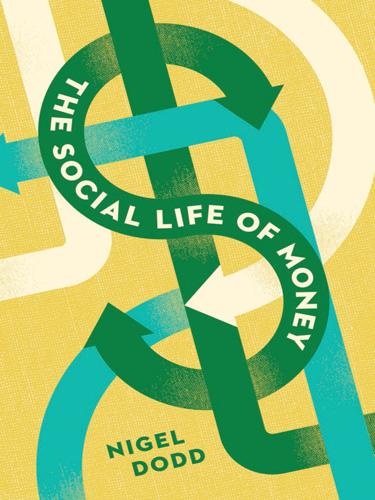
The Social Life of Money
by
Nigel Dodd
Published 14 May 2014
The Peace of Westphalia is a term that refers to the series of treaties signed in May to October 1648 in Osnabrück and Münster, ending the Thirty Years’ War (1618–1648) in the Holy Roman Empire, and the Eighty Years’ War (1568–1648) between Spain and the Dutch Republic. As a model of global order, the Westphalian system is underpinned by recognition of the fundamental right of a state to political self-determination, the assumption of states’ legal equality, and the principle that no state should intervene in the internal affairs of another. Territorial money, or national currency, is the analogue of this model.
…
See also First World War; Second World War; Vietnam War; violence war against terror, 43 Warburton, Peter, 199 Warren, Josiah, 342 Warwick, University of, 73n30 waste, 12–13, 151; and the gift, 186; and money, 175, 184, 204; versus utility, 164 Wave and Pay, 377 Weber, Florence, 292 Weber, Max, 109, 247, 276n, 292, 302, 317; on capitalism and religion, 143, 155, 175; on charisma, 247; on Knapp, 103; on money and the modern state, 217; on prices, 109n25; The Protestant Ethic and the Spirit of Capitalism, 156, 175; on taxation, 217 Weimar inflation, 131n57, 142, 224, 387 welfare. See social welfare Wendt, Alexander, 220 Wergild, 24, 302 Western Union, 380n Westphalia. See Peace of Westphalia Westphalian system, 216–27, 238 Where’s George?, 226 Wherry, Frederick, 164n Whuffie, 214, 316, 381 WikiLeaks, 380n Wittgenstein, Ludwig, 390 workers, 59, 72, 73, 74, 75–76, 77, 81, 242, 244, 345, 352; and cooperatives, 84; and consumers, 81, 86, 356; in Proudhon, 353–54; in the public sector, 77, 88, 126.
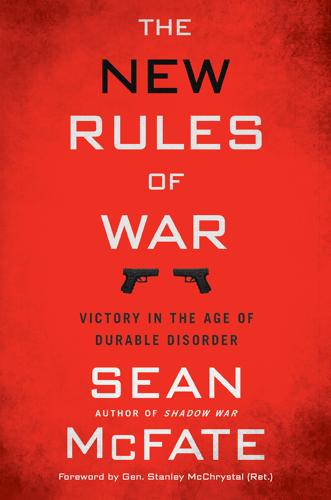
The New Rules of War: Victory in the Age of Durable Disorder
by
Sean McFate
Published 22 Jan 2019
For example, one of the sons of Muammar Gaddafi received his PhD at the London School of Economics with a dissertation extolling the virtues of democracy.16 Five years later, he joined in his father’s brutal response to the democratic uprising during the Arab Spring. Many of the West’s top schools shamefully admit the children of the global 1 percent in exchange for a bribe.17 Perhaps this corruption cannot be stopped, but it can be weaponized. Diplomacy also matters, but not in the way people think. Diplomatic statecraft evolved with the Westphalian system and is dying with it. Ministries of foreign affairs and the US State Department were designed to talk to other states, but now nonstate actors eclipse many countries in power. The institutions of a state must communicate with all actors of relevance, not just the ones with flags. This includes multinational corporations, terrorist groups, and criminal organizations who exert influence.
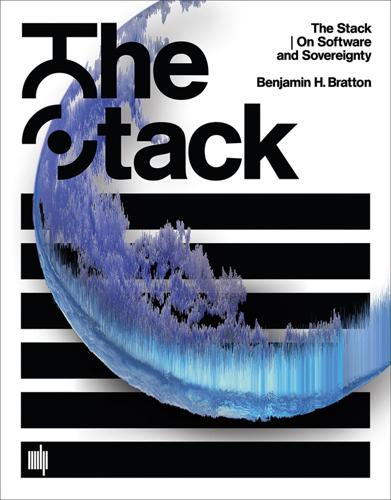
The Stack: On Software and Sovereignty
by
Benjamin H. Bratton
Published 19 Feb 2016
To say nothing of the more or less charted waters of the Dark Net, accessible only through tools like the Tor browser. 19. But as Jameson notes, it is the irregularity of opposing forces that breaks down the order of the nomos: “With the religious wars, but perhaps also the English dominance of the sea—now leads to the Westphalian system of nation-states, in which, for the first time, the new nomos of state equality and friend-foe emerges. The friend-foe opposition is possible, indeed, only between equals: it includes Hegelian recognition, except that whereas Hegelian struggle aims to produce recognition, Schmitt's version is enabled only after mutual recognition is secured.
…
See also currency money-into-virtuality, 199 monkeys, 222 Monroe, James, 45 Monroe Doctrine, 26, 31–32 Monroe Doctrine of the Cloud, 34–35, 37 Montana East Line Telephone Association, 29 moon, owning, 456n7 Moore Ruble Yudell, 322 Moore's law, 63, 80, 92, 232, 304 More, Thomas, 249, 321 Mori, Bruna, 103 Morphosis, 320, 322–323 Mosaic (browser), 267 Mouffe, Chantal, 379n10 Mountbatten Plan, 85 Mumbai attacks (2008), 17, 242, 247–248, 322, 428n58, 431n70 Musk, Elon, 281 mutual prostheticization, 280 MVRDV exposition pavilion, Hannover 2000, 53 MyLifeBits (Bell) (Microsoft), 261–262, 264 namecoin, 171 namelessness, 447n45 National Aeronautics and Space Administration (NASA), 88, 300 National Center for Supercomputing Applications, 267 National Security Agency (NSA), 35, 120, 283, 287, 363, 413n75 nation-state Cloud as, 93 interfaces into, 155–156 as jurisdiction, 5, 309–310 Kojève on, 109 modern, 24 non-state actors functioning as, 10–11 socialist, platform in, 59 twentieth-century achievements of, 309, 443n23 Westphalian system of, 14, 397n19 Native Land-Stop Eject (Virilio and Depardon, curators), 265 Negarastani, Rezi, 390n19 Negroponte, Nicholas, 201 nemein, 379n12 neo-Austrian libertarians, 285 neo-feudalism, 17, 186, 306–307 neoliberalism, 20–21, 56, 439n65 Nest (smart thermostat), 134 nested parasitism, 280, 288–289 Netscape, 267 Netwar, 431n70 network city, 172, 421n20 network is the computer (Sun Microsystems), 396n8 networks communication, 132, 153–154, 193–195 defined, 396n8 interior/exterior in, 29 megastructure, 189 of package delivery, 131 peer-to-peer, 205, 215 social reality of, 341 society, 231 space, making and taking, 29 as state, 11, 123 territory produced through, 29 value, 159 vehicle-to-vehicle (V2V), 281–282, 438n60 visualization, 266 “New Aesthetic, The,” 225 New Babylon (Constant), 178–179 New Deal, 120 New Digital Age, The (Schmidt and Cohen), 134–136 New Songdo City, South Korea, 179 Niantic Labs (Google), 242 Nicaragua-Costa Rica border conflict, 9, 120, 144 Nicolelis, Michel, 222 nihilism of empty space, overcoming, 380n20 1984 advertisement, 128–129, 402n57 Noguchi, Isamu, 103 nomos breaking down order of, 397n19 defined, 373 derivation, 379n12 drawing and framing sovereign interiors, 246 of friend-foe, 397n19 Modern, 380n13 nomic line, 84 Schmittian, 24–25, 85, 113, 379n12 of The Stack, 24, 229, 235 of state equality, 397n19 nomos of the Cloud defined, 373–374 dividing sovereignty, 19–22 drawing landscape-scale calculable interiors, 211 drivers of, 143 Google Grossraum, 34–40 introduction, 19 land, sea, and air, 28–31 over and under the line, 23–28 platform governance and, 341 topography, 111 Nomos of the Earth in the International Law of Jus Publicum Europaeum, The (Schmitt), 25 noncitizen residents in cities, 159, 175, 310, 409n39 noncitizen User, 175 nonhuman-human distinction, 164–165, 268, 275 nonhuman-to-human communication, 137, 171–172, 198 nonhuman User.
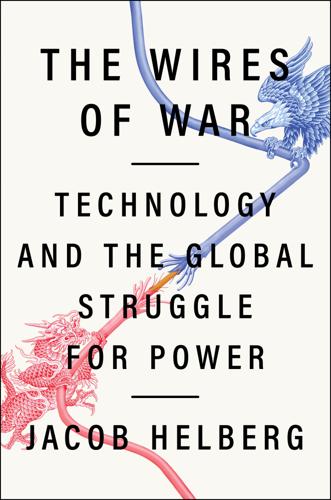
The Wires of War: Technology and the Global Struggle for Power
by
Jacob Helberg
Published 11 Oct 2021
China’s newfound wealth provided the resources not only to suppress opposition at home but to expand the country’s influence abroad. The British journalist Martin Jacques observes that China has long viewed itself not “as a nation-state but rather as a civilization-state.”82 In contrast to the so-called Westphalian system, in which nations treat each other as sovereign, China relates to other countries through the prism of ancient “tributary” relationships, with neighboring states acknowledging the country’s cultural superiority and overwhelming power in exchange for its protection. Even China’s name for itself, “the Middle Kingdom,” conveys this view of a country situated atop the hierarchy, between earth and heaven.83 As its foreign minister bluntly informed his counterparts at a 2010 meeting of the Association of Southeast Asian Nations, “China is a big country, and you are small countries.”84 In particular, China’s leaders speak of reversing a “century of humiliation” at the hands of Western powers—the period stretching from Britain’s 1842 defeat of the Chinese in the First Opium War through the Japanese invasion and brutalization of China during World War II.
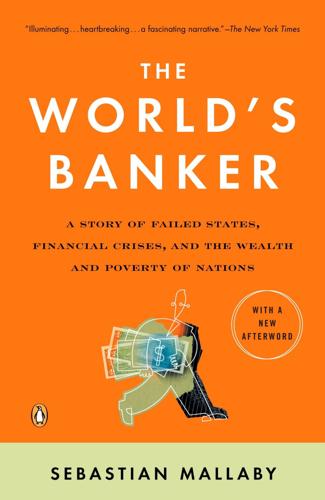
The World's Banker: A Story of Failed States, Financial Crises, and the Wealth and Poverty of Nations
by
Sebastian Mallaby
Published 24 Apr 2006
For the realists, suspicion of moralistic idealism was rooted in the seventeenth century, when religious fervor plunged Europe into the misery of the Thirty Years War—a conflict that ended only when the principles of sovereignty and nonintervention were enshrined in the Treaty of Westphalia. For the idealists, meanwhile, the limitations of the Westphalian system had been exposed by the horrors of the twentieth century; the Holocaust and the Soviet Gulag rendered indifference to the domestic policies of other states morally unacceptable. Sometimes the two sides studied the same centuries and drew opposite lessons. One Telluride alumnus remembers Wolfowitz praising Kissinger’s biography of Metternich during a late-night discussion at Wolfowitz’s home, but Wolfowitz went on to say that Kissinger had picked the wrong hero.
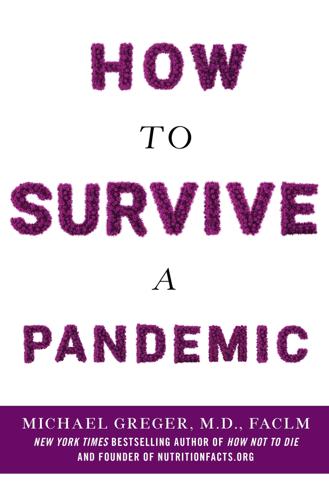
How to Survive a Pandemic
by
Michael Greger, M.D., FACLM
“Failure to comply could mean up to six months in jail.”2445 When authorities went to forcibly round up ducks and chickens in the region, they were reportedly met by hostile farmers armed with pitchforks and axes.2446 Part of the problem may be that existing international law on infectious disease control is archaic, formed many decades ago, long before mass global travel. The World Health Organization, for example, can only issue “soft law” recommendations, rather than binding obligations. This outmoded system of international relations in general dates back to the seventeenth-century Peace of Westphalia ending the Thirty Years War. The Westphalian system is built upon the principle of absolute national sovereignty.2447 “Many governments see it [disease prevention] as an internal business,” said the WHO’s director-general. “There is a basic gut feeling that this is my problem, I will deal with it in my way. Now, in a globalized world, any disease is one airplane away.
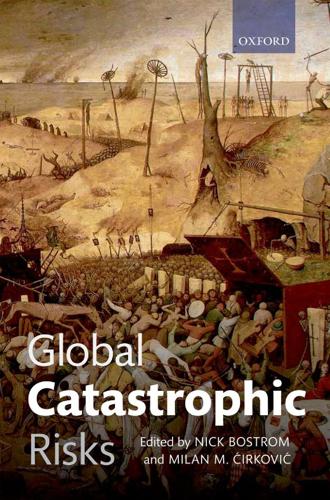
Global Catastrophic Risks
by
Nick Bostrom
and
Milan M. Cirkovic
Published 2 Jul 2008
The group might even achieve these results without a nuclear detonation, by providing proof that it had a nuclear weapon in its possession at a location unknown to its adversaries. The addition on the world stage of powerful non-state actors as the ostensible military equals of (at least some) states would herald the most significant change in international affairs since the advent of the Westphalian system. While one can only speculate about the nature of the resultant international system, one possibility is that 'superproliferation' would occur. In this case every state (and non-state) actor with the wherewithal pursues nuclear weapons, resulting in an extremely multipolar and unstable world order and greater possibility for violent conflict.